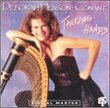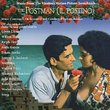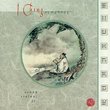| All Artists: Franz [Vienna] Schubert, Wilhelm Kempff Title: Schubert: The Piano Sonatas [Box Set] Members Wishing: 0 Total Copies: 0 Label: Deutsche Grammophon Original Release Date: 1/1/1965 Re-Release Date: 10/10/2000 Album Type: Box set Genres: Special Interest, Classical Styles: Holiday & Wedding, Opera & Classical Vocal, Chamber Music, Forms & Genres, Sonatas, Historical Periods, Classical (c.1770-1830), Modern, 20th, & 21st Century, Romantic (c.1820-1910) Number of Discs: 7 SwapaCD Credits: 7 UPC: 028946376621 |
Search - Franz [Vienna] Schubert, Wilhelm Kempff :: Schubert: The Piano Sonatas [Box Set]
![Schubert: The Piano Sonatas [Box Set]](https://nationalbookswap.com/cd//l/12/4412/6084412.jpg) | Franz [Vienna] Schubert, Wilhelm Kempff Schubert: The Piano Sonatas [Box Set] Genres: Special Interest, Classical
No Description Available. Genre: Classical Music Media Format: Compact Disk Rating: Release Date: 10-OCT-2000 |
Larger Image |
CD DetailsSynopsis
Product Description No Description Available. Genre: Classical Music Media Format: Compact Disk Rating: Release Date: 10-OCT-2000 Similarly Requested CDs
|
CD ReviewsKempff and the virtues of balance Alex Serrano | Perrysburg, Ohio United States | 05/11/2001 (5 out of 5 stars) "As much as one would prefer complete cycle recordings, very few pianists find so much afinity with a single composer as to offer a compelling account of a complete cycle. Gilels or Richter never played Beethoven complete sonata cycles, Ashkenazy's Chopin cycle is full of great performances as the ballades and others were he seems to fall out of the love with the music as in the polonaises. So the point being that rarely can a pianist do justice to complete sets, why is it that i am giving a 5 star rating to this set? Well, to me it seems that Kempff had all the ideal atributes for Schubert playing as are solid technique and expansive rhythms, concentration in touch and a singing line, but most important is that you feel all throughout these recordings that he loves every detail of the music. Simply put, it seems that he was enjoying himself here and all details considered, his Schubert playing is perfectly balanced. Get it - soundwise Uchida's and Schiff's cycles have now the advantages of modern recordings, but both of them lack the heart Kempff has bestowed here." Indispensable, at a great price Geoffrey P. Smith | ATLANTA, GA USA | 07/25/2001 (5 out of 5 stars) "All of Schubert's piano sonatas, fragments, and the completed masterworks, together in a neat box; 7 discs worth of pure listening pleasure, allowing one to see how the composer grappled with the keyboard sonata form, and along the way created several masterpieces of the genre. Kempff recorded these works over a period of several years, and whilst the recorded sound quality varies from good to excellent, the quality of interpretation is uniformly high to my ear. This is gorgeous playing, evocatively capturing the shifting moods of this often elusive composer. Are these the greatest of interpretations? Perhaps..perhaps not. Either way, in an increasingly crowded market of recordings, this set has to be highly recommended for many reasons, not the least of which is the utter committment of Kempff to this music and the manner in which he convinces us, the listeners, of the 'rightness' of his choices. Oh, and need I mention again that ALL the sonatas are here, in one very beautifully priced box set" Sometimes the old ways are the best Elliot Richman | New Jersey, US | 04/26/2007 (5 out of 5 stars) "Kempff himself wrote the liner notes to this highly satisfying set and states the following: "The deeper we penetrate into the world of Schubert, however, the greater is our surprise at discovering that the 'heavenly length' for which he is reproached is to be regarded relatively. If the length becomes evident as longueurs, the fault lies with the interpreter (I speak from my own experience...)." Indeed, in listening to Kempff play the Schubert sonata canon the thoughts of "overly long" or "needlessly repetitive" never entered my head. Barring some extraordinary performances of individual sonatas over the years, such as Richter's old Russian recording of the c minor (D 958) on Melodiya or Serkin's equally old recording of the B-flat (D 960), this is the best playing of the Schubert sonatas I know.
I used to think of some of the earlier sonatas as practice or training pieces for the later masterworks (which of course by definition they are, but they need not be viewed retrospectively from the vantage point of the late works). Unfortunately, they often sound boring and immature. This is due to defects in players and the playing, not a problem with Schubert. Kempff makes all the sonatas here, including the early ones, glow with the utmost musicality so they stand on their own as beautiful works. Just one example: In the earlier of the a minor sonatas he handles little secondary figures that are intercalated within major theme phrases in an amazingly musical and beautiful way. As a pianist myself, I could never figure out how to make them unobtrusive, let alone desirable. Under Kempff's fingers they fit sublimely into the fabric of the work. The playing is clearly layered, every note and phrase has its place and purpose, his internal logic is such that nothing Schubert wrote sounds less than as it should. One more example: The first movement of the G major sonata ("Fantasy" sonata, D 894) floats in its ethereal haze but goes fast, not slow. Kempff can produce the effect of suspended animation without suspending the actual motion. This is no doubt what Schubert intended but it is very difficult to pull off as a performer. Kempff's treatment of the last 5 sonatas (D, G, A, c minor, and B flat) is breathtaking. This set is a revelation. What a magnificent panorama of Schubert's development as a composer! Also, the origins of later composers' styles can be traced to Schubert's writing for piano. The roots of Bruckner's iterated and protracted symphonies can be heard, for example, in the way the finale of the a minor sonata begins. (I don't think this is apparent from other players, who lack Kempff's lyricism and mysticism.) Included beside the actual titled sonatas are various fragments of incomplete sonatas and collections of piano pieces that in effect are untitled sonatas (such as D 459/459A). The recordings are from around 1965-1970 and the piano sound is singing, glowing, radiant. I recommend this set wholeheartedly to anyone interested in great musicianship, masterly piano playing, Schubert's piano music, and Schubert's evolution as a composer. Kempff makes you realize that the magic didn't all happen in the last year of Schubert's life, and I can't think of another pianist who does that for me. (There are few, if any, major players of Schubert with whom I'm not familiar.) Kempff was the leading German pianist of the immediate post-WW II era, but I think he has largely been forgotten. His Schubert, Beethoven, and Brahms are wonderful. Modern players, despite their steel fingers and elephantine endurance and machine-like (sometimes machine-gun-like) techniques, stand to learn a lot from this old master's art." |

 Track Listings (9) - Disc #1
Track Listings (9) - Disc #1








